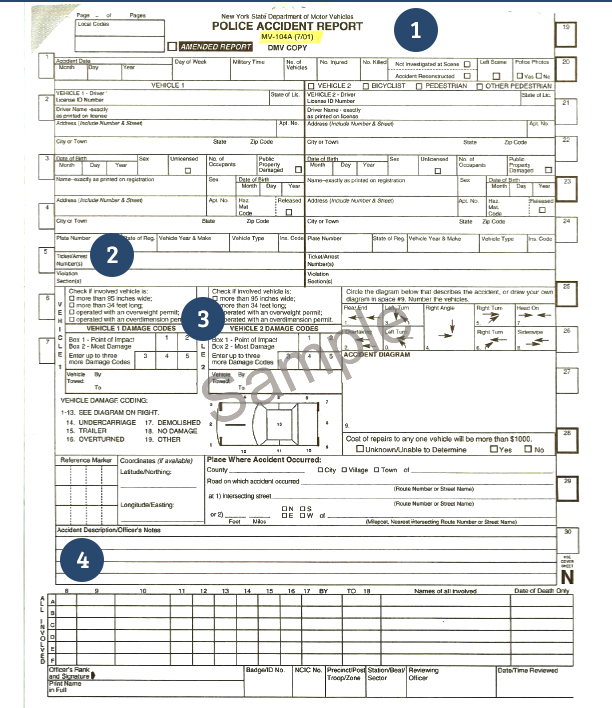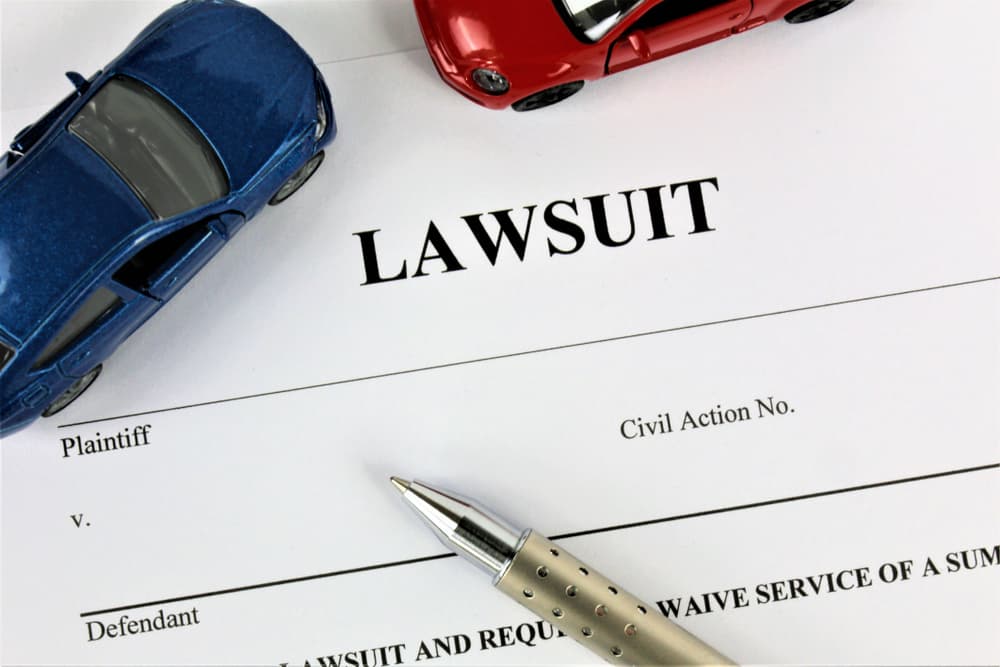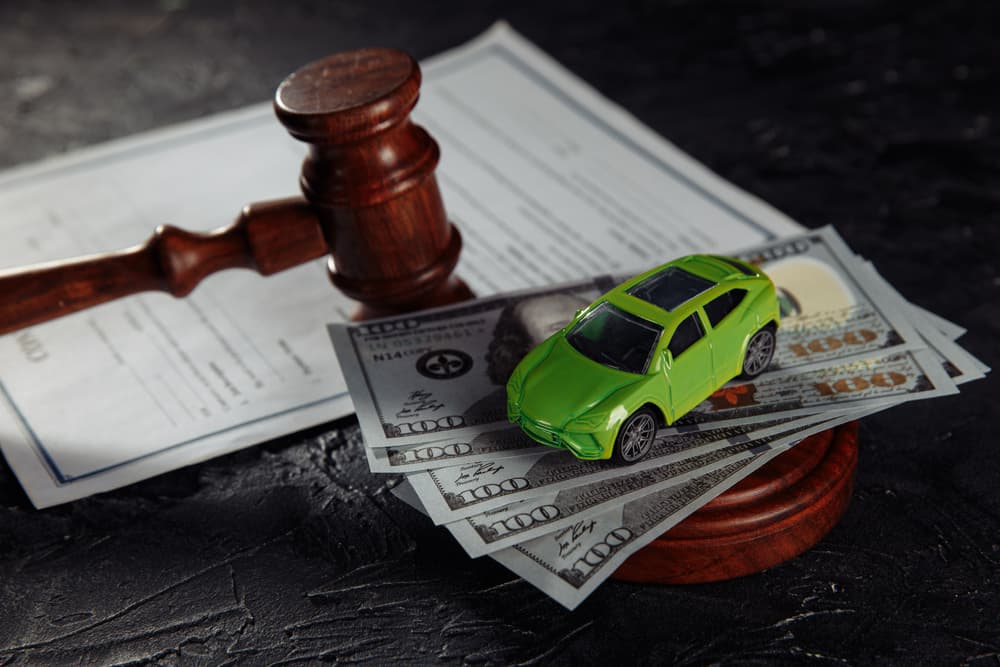Quick Answer
Car accident lawsuits can be overwhelming, especially when you’re trying to recover physically, emotionally, and financially.
Whether you’re deciding whether to file, wondering how the process works, or trying to understand your rights, this guide breaks it all down into practical, easy-to-follow steps.
When should I file a car accident lawsuit?
Filing a lawsuit is usually not your first step after a car accident. In most cases, claims are handled through insurance.
But if you’ve suffered serious injuries, your medical bills are mounting, or the insurance company isn’t cooperating, a lawsuit may be your best option.
Situations where a lawsuit makes sense:
- You have long-term or permanent injuries
- The at-fault driver was uninsured or underinsured
- The insurer is using stalling tactics or has made a lowball offer
- You’re facing future medical expenses or lost earnings
- There’s a dispute over who is at fault
Let’s cover those situations in a little more detail:
You have long-term or permanent injuries
If your injuries from the crash require ongoing treatment or permanently affect your quality of life or ability to work, a lawsuit may help you recover the compensation needed for long-term care.
This includes damages for future medical bills, loss of earning capacity, rehabilitation, home modifications, and loss of enjoyment of life.
The at-fault driver was uninsured or underinsured
When the driver who caused your accident doesn’t have insurance, or doesn’t have enough to cover your losses, you may need to take legal action.
You can sue the driver personally, or you may need to file a claim under your own uninsured/underinsured motorist (UM/UIM) coverage, depending on your policy.
The insurer is using stalling tactics or has made a lowball offer
Insurance companies sometimes delay decisions or offer settlements far below what a case is worth, hoping claimants will take what they can get.
If this happens, a lawsuit may be necessary to pressure the insurer into negotiating fairly, or to let a judge or jury decide the outcome.
You’re facing future medical expenses or lost earnings
A settlement should take into account not just your immediate costs but any expenses you’ll face going forward.
If your injuries require long-term treatment or prevent you from returning to work, a lawyer can help estimate and prove these damages in court.
There’s a dispute over who is at fault
In some accidents, both drivers share some responsibility.
If the insurer claims you were fully or partially at fault and you disagree, a lawsuit can bring in independent evidence, like accident reconstruction experts or witness testimony, to clarify liability.
Even if you’re partially at fault, you may still recover damages depending on your state’s comparative negligence laws.
Consulting a personal injury attorney or using the Mighty.com AI claims helper can help you evaluate whether a lawsuit is likely to be successful and worth your time.
How to file a car accident lawsuit
Filing a lawsuit begins with several key steps:
- Hire a car personal injury attorney or prepare your case: A lawyer ensures you’re represented by someone who understands the law, the process, and how to negotiate with insurers. You can also represent yourself with the help of the Mighty.com AI claims helper.
- Investigate the claim: Gather medical records, accident reports, witness statements, and expert opinions.
- File a complaint: This legal document outlines your case and is submitted to the appropriate court.
- Serve the defendant: The other party must be formally notified of the lawsuit.
- Begin discovery: Both sides exchange information relevant to the case.
The settlement process can take several months to over a year, depending on the complexity of the case and how cooperative the defendant is.
Auto accident lawsuits and police reports

A police report can be crucial in a car accident lawsuit. It provides an impartial third-party account of the accident, including:
- Date and location
- Statements from both drivers
- Witness names and contact information
- Any citations issued
While not always admissible as evidence in court, a police report strengthens your case during negotiations and depositions.
If errors exist in the report, your attorney may work to correct or clarify them with supporting evidence.
Filing a car accident counterclaim
If you’ve been sued for causing an accident, but you believe the other party was partially or fully at fault, you can file a counterclaim.
This turns you into a counter-claimant and may allow you to recover damages yourself.
Example: You were rear-ended, but the other driver claims you stopped suddenly. If you believe their speed or distraction played a role, a counterclaim can be used to present your side.
Get legal advice immediately if you’ve been served legal papers so you don’t miss deadlines.
What is a car accident lawsuit worth?
There’s no universal answer, but key factors that determine the value of a car accident lawsuit include:
- Medical bills (past and future)
- Lost income and reduced earning capacity
- Pain and suffering
- Property damage
- Emotional distress
- Punitive damages (in rare cases involving gross negligence)
Settlement amounts can range from a few thousand to several million dollars depending on the severity of the injuries and the level of fault involved.
Stages of a car accident lawsuit
A typical lawsuit includes:
- Initial consultation: Evaluate your case with a lawyer (if you use one).
- Investigation and evidence gathering
- Filing the complaint and serving the defendant
- Discovery: Includes depositions, interrogatories, and document exchange
- Pre-trial motions and possible mediation
- Trial: If no settlement is reached
- Verdict and appeal (if applicable)
Most cases are resolved before reaching trial.
When does a car accident case go to trial?
Only about 5–10% of car accident cases go to trial.
Common reasons include:
- Major disagreement about fault
- Insurance company refuses to settle fairly
- High-value claims with complex damages
- Cases involving punitive damages
Trials can be lengthy and unpredictable, but sometimes they’re necessary to secure fair compensation.
Car accident case deposition
A deposition is a recorded, out-of-court testimony given under oath.
It’s part of the discovery process and allows attorneys to gather detailed information from:
- Drivers
- Witnesses
- Medical professionals
Depositions help both sides evaluate the strengths and weaknesses of the case.
Deposition sample questions
Here are some typical questions asked during a car accident deposition:
- Where were you coming from and going to at the time of the accident?
- What do you remember about the accident?
- Were there any distractions in your vehicle?
- Have you had previous injuries or accidents?
- What medical treatment have you received?
Answering truthfully and staying calm is crucial and it really pays to prepare in advance.
Auto accident case interrogatories
Interrogatories are written questions that each party must answer under oath.
Common topics include:
- Medical history
- Description of injuries
- Employment details
- Insurance coverage
- List of witnesses
Like depositions, they help narrow down the issues and build a factual basis for your claim.
Car accident lawsuit settlement timeline
A typical timeline for settlements looks like this:
- Week 1–4: Medical evaluation and initial evidence gathering
- Month 2–4: Filing the claim, insurance negotiation begins
- Month 4–8: Possible settlement or lawsuit filing
- Month 9–18: Discovery and negotiation
- Month 18+: Trial, if needed
Some cases settle in months, others take over a year, especially if the injury’s long-term impact needs time to assess.
Will my car accident lawsuit end in a settlement?
Statistically, yes. The vast majority of car accident cases settle before trial1.
Settlements offer:
- Quicker resolution
- Lower legal costs
- Predictable outcomes
You or your lawyer can push for a settlement that reflects the full value of your claim.
If the other side refuses, trial becomes the next option.
Average car accident settlement amounts
Average car accident settlement amounts in the US vary widely based on the severity of injuries, the clarity of fault, insurance coverage, and local legal norms.
However, here’s a general breakdown based on national data and legal industry estimates:
Typical personal injury settlement ranges by injury severity:
- Minor injuries (whiplash, sprains, soft tissue injuries): $2,500 to $25,000
These cases often involve short-term medical care and little or no time off work. - Moderate injuries (fractures, concussions, extended physical therapy): $25,000 to $100,000
These involve longer recovery, higher medical bills, and potential lost wages. - Severe injuries (traumatic brain injury, spinal injuries, permanent disability): $100,000 to $500,000+
These cases typically involve long-term or lifelong impact, extensive medical care, and major life disruption. - Catastrophic injuries or wrongful death: $500,000 to several million dollars
These settlements or verdicts account for lifetime care, future earnings, and emotional suffering.
Average settlement by case type (estimated):
- Rear-end collision (no major injury): $10,000–$30,000
- Intersection accident (disputed liability): $15,000–$75,000
- Commercial vehicle accident: $75,000–$200,000+
- Pedestrian struck by a car: $25,000–$500,000
- Uninsured/underinsured driver claim: Often capped by policy limits, unless additional litigation is involved
Factors that affect settlement amounts:
- Medical bills and documented injuries
- Lost wages and ability to work in the future
- Fault clarity (clear fault vs shared responsibility)
- Policy limits of the at-fault driver’s insurance
- Jurisdiction and jury tendencies
- Quality of legal representation
Example:
If you were in a moderate rear-end crash, saw a doctor several times, had physical therapy, and missed two weeks of work, your settlement might land in the $15,000–$40,000 range.
The amount will depend on the insurer’s position and your state’s comparative negligence laws.
Who pays when you sue in a car accident?
If you win, the at-fault party’s insurance company usually pays your compensation.
If the driver is uninsured or underinsured, your own insurance might cover it, if you have the right type of policy.
Legal fees are usually taken from your settlement via a contingency fee agreement. That means you don’t pay unless you win.
If you lose, and your lawyer works on contingency, you typically won’t owe anything for legal services.
However, you might still be liable for certain court costs or expert witness fees, depending on your agreement.
How car accident lawyers get paid
If you’re hesitant to contact a lawyer because you’re worried about how much car accident lawyers cost, you’re not alone.
Many people assume legal help is out of reach financially, but in car accident cases, that’s usually not true.
Most personal injury lawyers work on a contingency fee basis.
That means:
- You don’t pay anything upfront
- You only pay if they win your case or reach a settlement
- Their fee comes out of your final compensation
The typical contingency fee ranges between 30% and 40% of your settlement or court award.
The exact percentage often depends on how complex the case is and whether it goes to trial.
Some lawyers may also deduct case expenses like court filing fees, medical records, or expert witness costs.
A good lawyer will explain these terms clearly before you sign anything.
Why this matters: A contingency fee structure lets you access professional legal help without financial risk. It also aligns your lawyer’s goals with yours: they only get paid if you do.
How long does a car accident lawsuit take?
One of the most common questions after a serious crash is, “How long will all this take?”
Unfortunately, there’s no one-size-fits-all answer.
It depends on several factors, including:
- How clear-cut the fault is
- How severe your injuries are
- Whether the insurance company is willing to negotiate fairly
- Whether the case goes to trial
Here’s a general idea of how long each stage might take:
- Settlement without a lawsuit: 1 to 6 months
- Settlement during litigation: 6 to 18 months
- Trial verdict: 1 to 3 years or more
Insurance companies may deliberately stall in hopes that you’ll accept a lower offer.
If you’re still receiving medical treatment, your lawyer might delay settlement negotiations until your condition stabilizes, so future costs are accounted for properly.
The more prepared you are, the more likely you’ll see a faster and more favorable resolution.
Final thoughts
Filing a car accident lawsuit isn’t just about seeking compensation, it’s about protecting your future.
When injuries are serious, fault is disputed, or insurers fail to treat you fairly, taking legal action may be the most effective way to recover the full cost of your damages.
Understanding how the process works, from deciding whether to file, to depositions, interrogatories, and possible settlement, is essential.
The more informed you are, the more confidently you can make decisions.
Whether your case settles or goes to trial, you use the Mighty.com claims helper to see whether you can self-file a claim or use an attorney, there is always light at the end of that tunnel!
Frequently Asked Questions
1. Do I need a lawyer to file a car accident lawsuit?
Technically, no, you can file a lawsuit on your own (called pro se). But in practice, most people benefit greatly from hiring an attorney, especially when the case involves serious injuries, disputed liability, or substantial financial losses.
Insurers have legal teams working to minimize payouts, and an experienced personal injury lawyer knows how to navigate these tactics, build a strong case, and push for maximum compensation.
2. How long do I have to file a car accident lawsuit?
This depends on your state’s statute of limitations. In most states, the deadline is two to three years from the date of the accident. Some states allow more or less time. If you miss the deadline, you lose your right to sue regardless of how strong your case is.
It's best to take action early to avoid time running out.
3. What happens if I was partially at fault for the crash?
Many states use a comparative negligence rule. This means you can still recover damages even if you were partially at fault, but your compensation will be reduced by your percentage of blame.
For example, if you’re 20% at fault and awarded $50,000, you’d receive $40,000. A few states follow a contributory negligence rule, where being even 1% at fault may bar you from recovering anything.
4. Can I sue if the other driver didn’t have insurance?
Yes, but collecting may be difficult if the driver has no assets. In these cases, your uninsured motorist coverage can help, if you have it.
You may also be able to sue third parties (e.g. a bar that overserved the driver or a manufacturer if faulty parts contributed). A lawyer can investigate all options for recovery.
5. Will my case go to trial, or will it settle?
The vast majority of car accident lawsuits settle, over 90%. Settlements can occur at any stage, sometimes even right before trial. Whether your case settles depends on factors like how clear liability is, the strength of your medical evidence, and how reasonable the insurer’s offers are.
If a fair settlement isn’t reached, your lawyer may recommend going to court to seek full compensation.
Sources
- Omar Ocho Law - Do Most Cases Settle Before Trial? https://www.omarochoalaw.com/blog/percentage-of-cases-that-settle-before-trial
Know Your Claim’s Worth—and Settle It
Serious injury or no injury at all, move your case forward instantly from your phone.
Thank you for submitting your information.

About the author
Joshua is a lawyer and tech entrepreneur who speaks and writes frequently on the civil justice system. Previously, Joshua founded Betterfly, a VC-backed marketplace that reimagined how consumers find local services by connecting them to individuals rather than companies. Betterfly was acquired by Takelessons in 2014. Joshua holds a JD from Emory University, and a BA in Economics and MA in Accounting from the University of Michigan.






